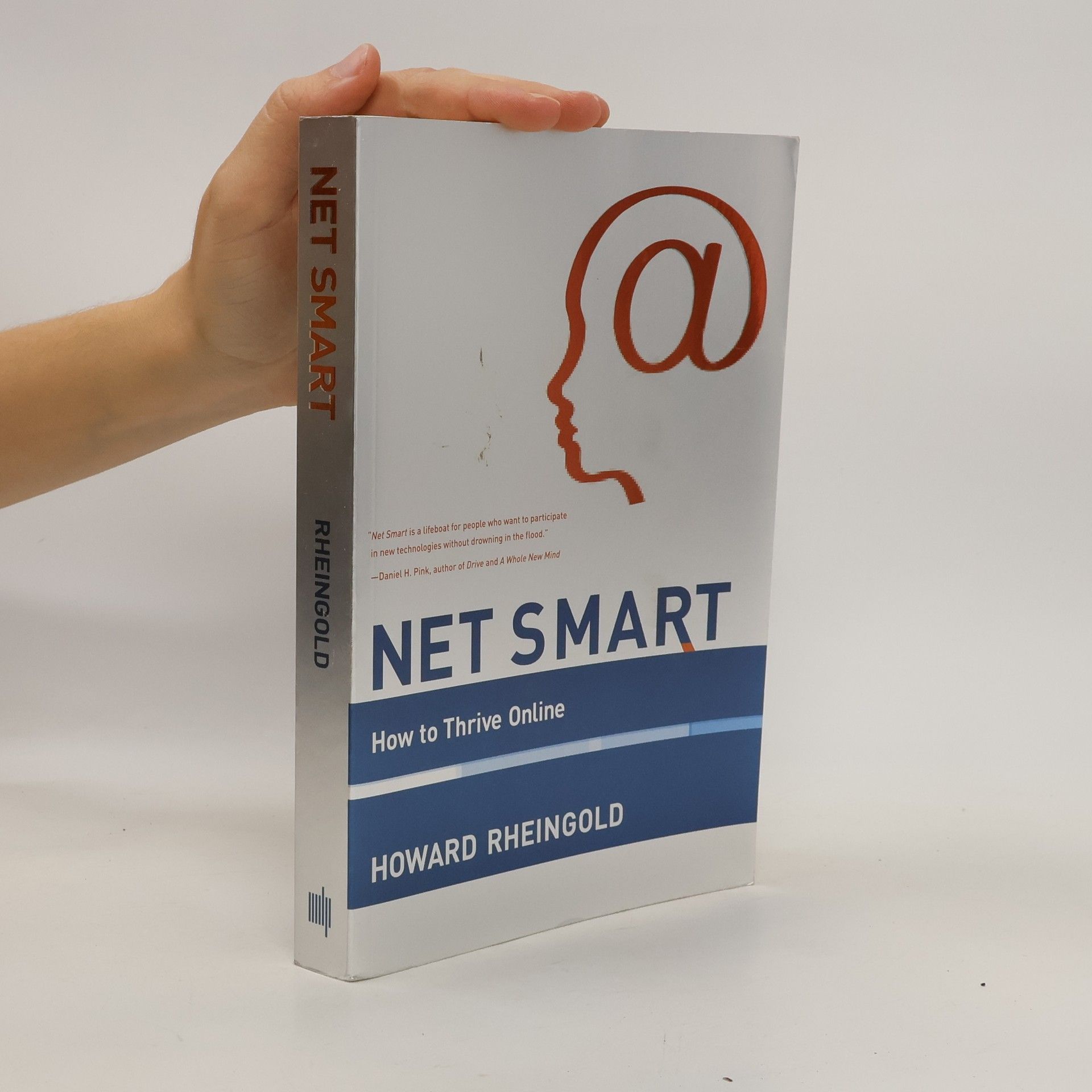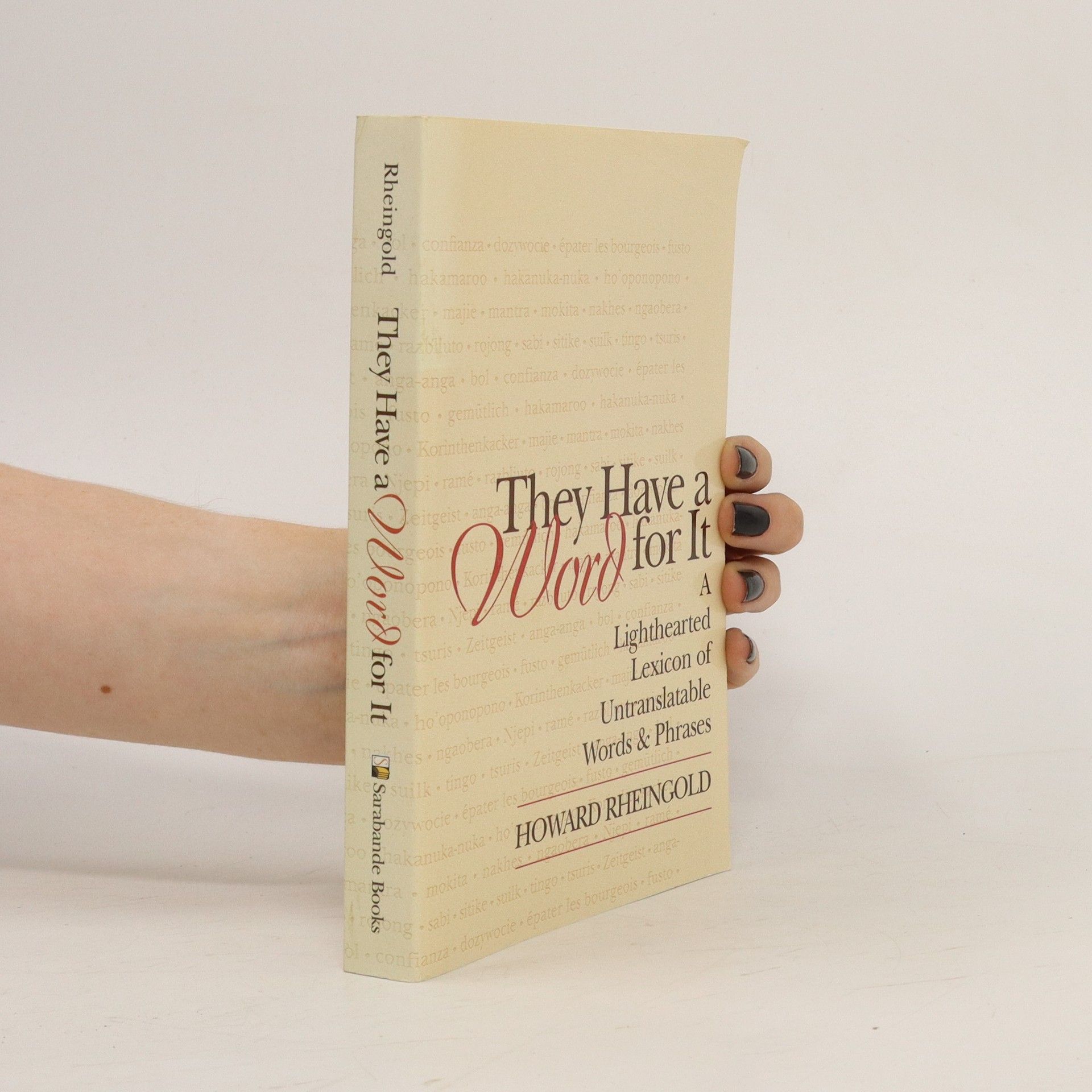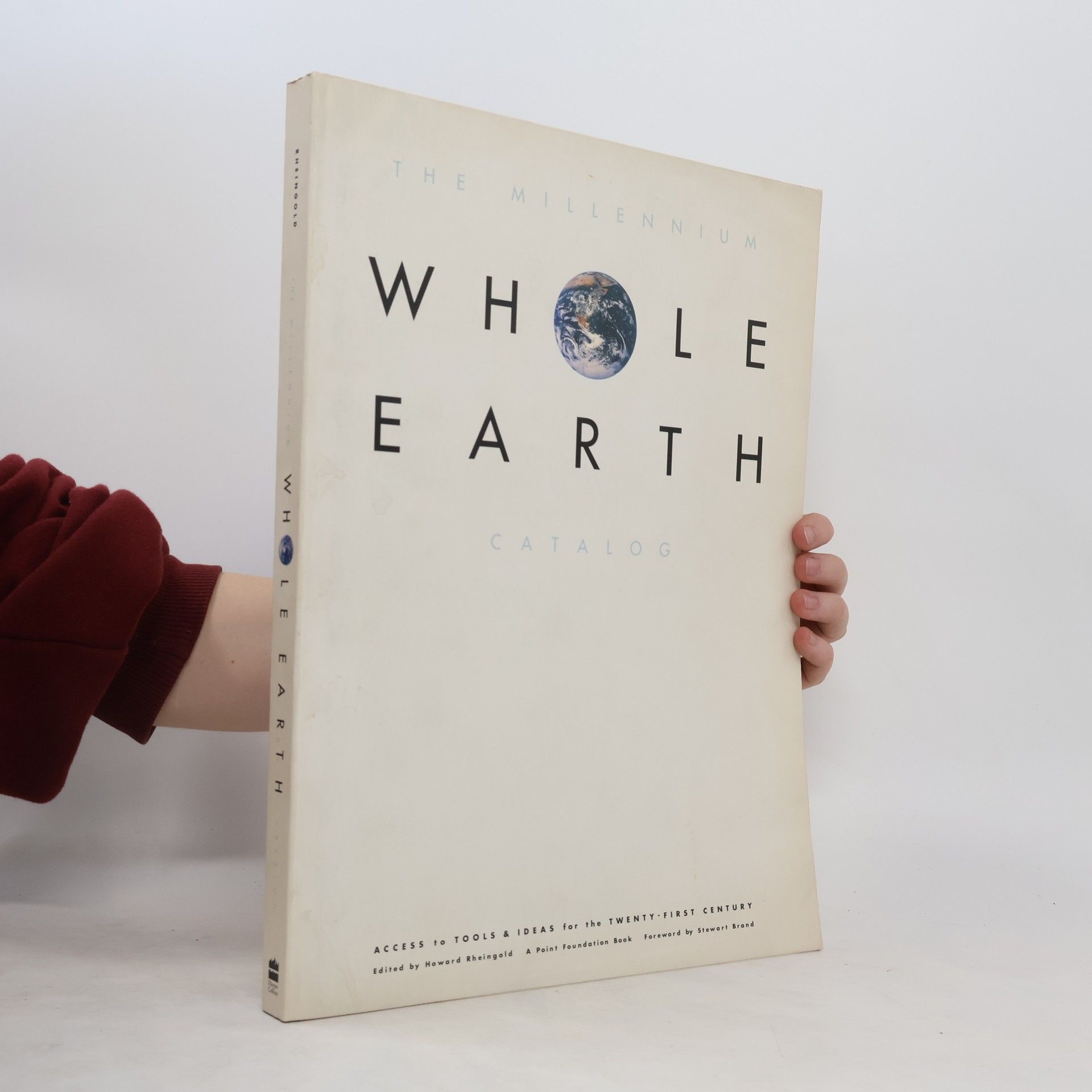The Millennium Whole Earth Catalog
Access to Tools and Ideas for the Twenty-first Century
Lists useful resources related to science, health care, crafts, communication late-twentieth century technologies, biodiversity, and more.
Este autor ha dedicado su vida adulta a la escritura, explorando las profundidades de la experiencia humana. Su obra se caracteriza por una aguda perspicacia temática y destreza estilística. Los lectores apreciarán su capacidad para evocar fuertes emociones y pensamientos a través de una voz narrativa única. El enfoque del autor es reflexivo, centrándose en la creación de experiencias literarias memorables.






Access to Tools and Ideas for the Twenty-first Century
Lists useful resources related to science, health care, crafts, communication late-twentieth century technologies, biodiversity, and more.
" ... more than forty familiar and obscure languages to discover genuinely useful (rather than simply odd) words that can open up new ways of understanding and experiencing life"--Page 4 of cover
“[A] solid how-to book . . . For amateur dream researchers, this is a must.”—Whole Earth Review Lucid Dreaming—conscious awareness during the dream state—is an exhilarating experience. Because the world you are experiencing is one of your own creation, you can do the impossible and consciously influence the outcome of your dreams. Exploring the World of Lucid Dreaming goes far beyond the confines of pop dream psychology, establishing a scientifically researched framework for using lucid dreaming. Based on Dr. Stephen LaBerge’s extensive laboratory work at Stanford University mapping mind/body relationships during the dream state, as well as the teachings of Tibetan dream yogis and the work of other scientists, including German psychologist Paul Tholey, this practical workbook will show you how to use your dreams to: • Solve problems • Gain greater confidence • Improve creativity • Face and overcome fears and inhibitions • Create a new sense of empowerment and liberation in your life The techniques you’ll learn in this exciting workbook will make your nightly dream journeys more enjoyable, increase your understanding of yourself, and make you realize that the possibilities of expanding consciousness are far greater than you might think.
Homesteading on the Electronic Frontier
Praised as one of the ten best book of the year by Business Week, this lively and provocative look inside the development, inner workings, and future of the Internet is a must-read for anyone hoping to understand the next wave of human culture and communication.
A media guru shows us how to use social media intelligently, humanely, and, above all, mindfully.
The Revolutionary Technology of Computer-Generated Artificial Worlds - and How It Promises to Transform Society
Imagine being able to "walk" into your computer and interact with any program you create. It sounds like science fiction, but it's science fact. Surgeons now rehearse operations on computer-generated "virtual" patients, and architects "walk through" virtual buildings while the actual structures are still in blueprints. In Virtual Reality , Howard Rheingold takes us to the front lines of this revolutionary new technology that creates computer-generated worlds complete with the sensations of touch and motion, and explores its impact on everything from entertainment to particle physics.
Hainer Kober, geboren 1942, lebt in Soltau. Er hat u. a. Werke von Stephen Hawking, Steven Pinker, Jonathan Littell, Georges Simenon und Oliver Sacks übersetzt.
Computergestützte Kommunikation, Infotainment, Datenautobahnen, Interaktivität, Cyberspace und digitale Zukunft sind klangvolle Schlagwörter unserer Zeit. Der Autor verfolgt den Weg von den Anfängen der computergestützten Kommunikation (CMC) bis in die kommerzialisierte Gegenwart, er zeigt verschworene Online-Gemeinschaften mit ihrer ganz eigenen, vielfältigen Kultur, die sich zu einem engmaschigen Netz zusammengeschlossen haben, in dem alles ausgetauscht wird, von wissenschaftlichen Daten bis zu erotischen Phantasien, von Tips zur Kindererziehung bis zu politischen Meinungen jeglicher Couleur. Und er schildert Chancen und Entwicklungsmöglichkeiten, aber auch die Risiken und Schattenseiten der elektronischen Zukunft.